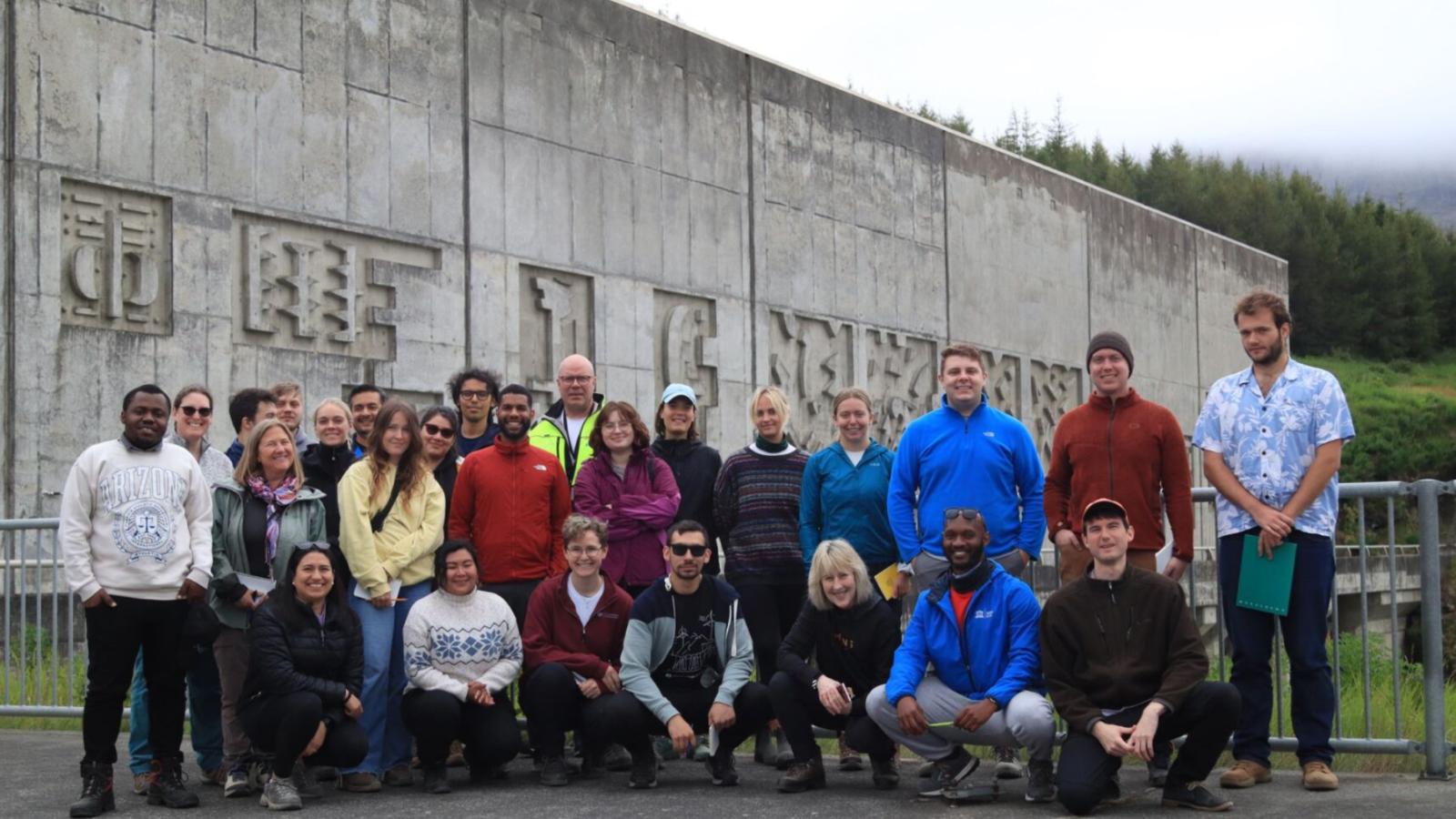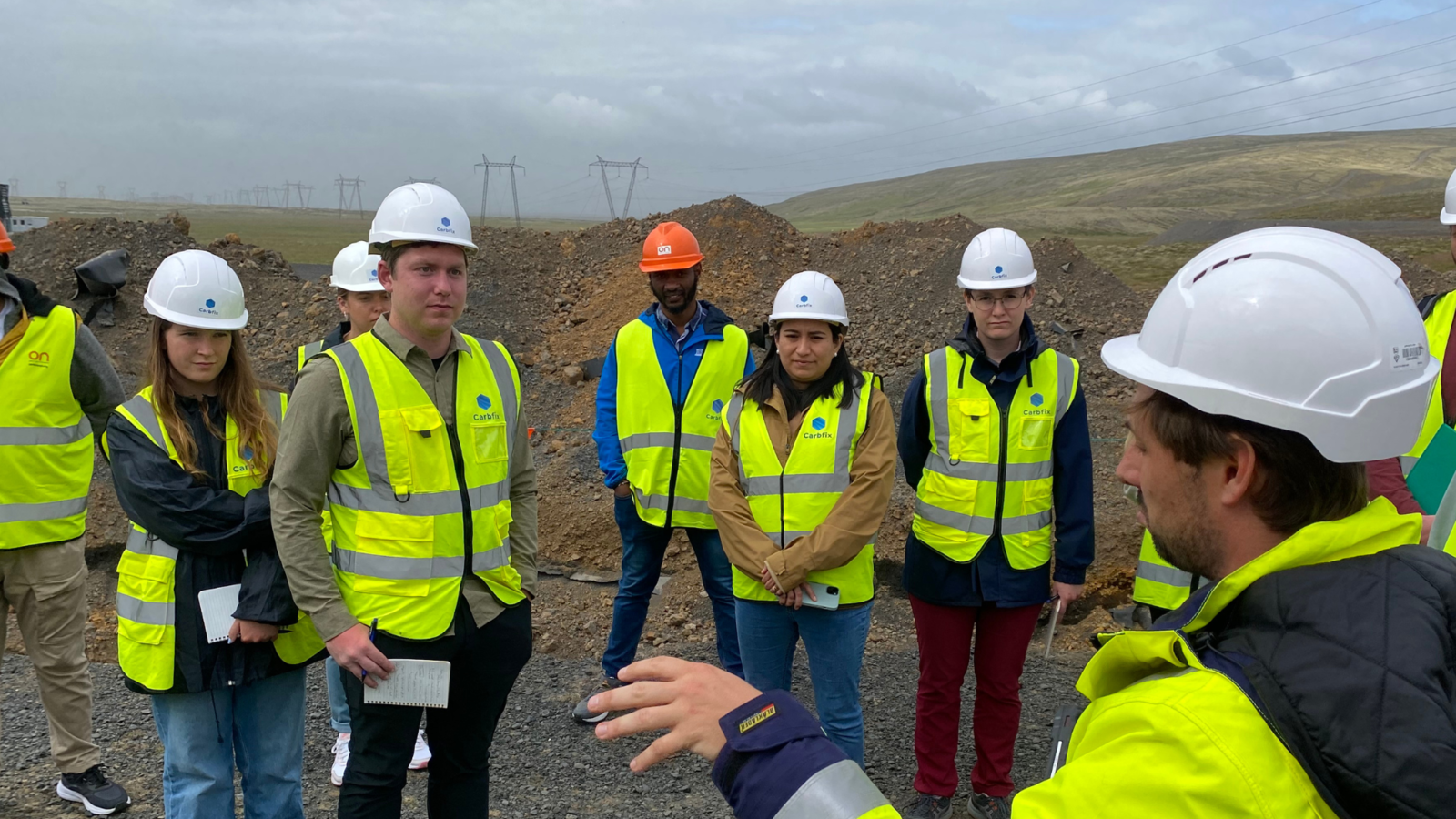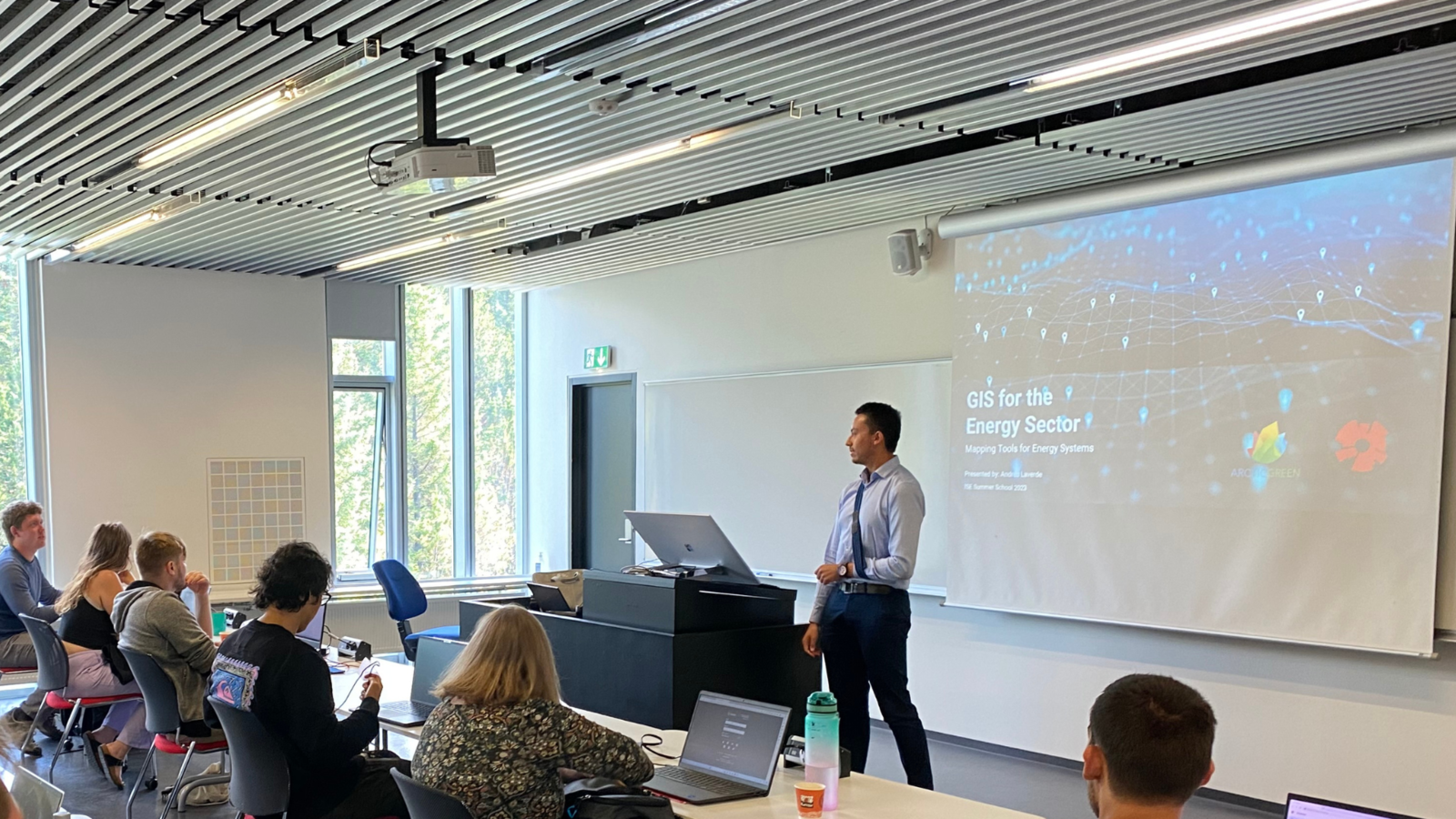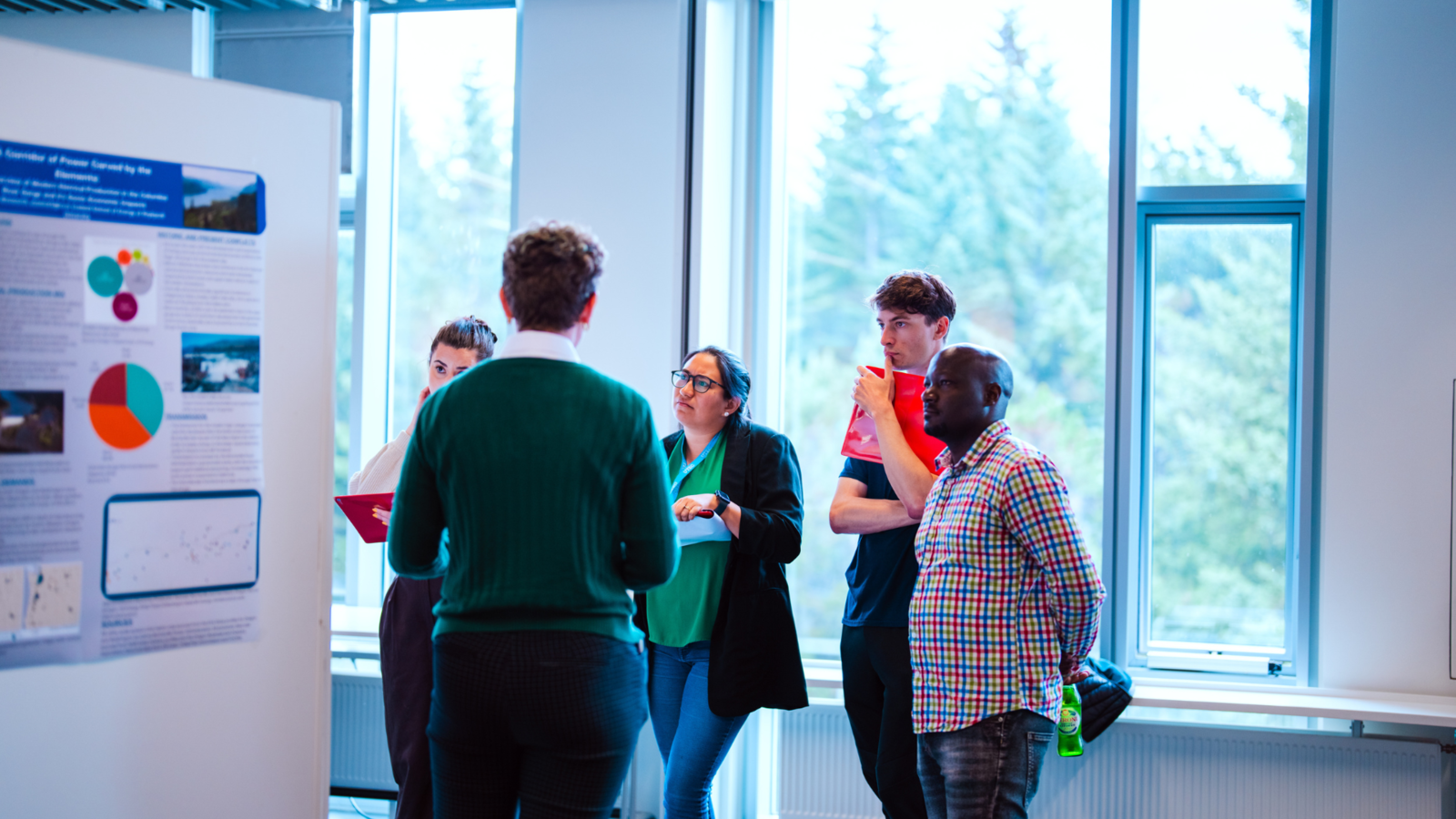Accelerating the Future: 3-Week Intensive Journey into Energy
Iceland School of Energy Concludes the 2023 Energy Field School
The Iceland School of Energy (ISE) at Reykjavik University recently concluded its three-week Energy Field School, an immersive program that provided participants with a comprehensive understanding of sustainable energy technology. This year's program was marked by innovation, collaboration, and a global perspective, reflecting the growing demand for sustainable energy solutions.
 Students on the Energy Field School along with students from the previous year, visited a hydropower plant.
Students on the Energy Field School along with students from the previous year, visited a hydropower plant.
A Global Learning Experience
This year's program welcomed 16 brilliant students from Finland, the United States, Romania, Peru, El Salvador, France, and Kenya. The course boasted an even gender split, fostering a rich, global perspective on energy challenges and solutions. The diversity of participants allowed for a unique exchange of ideas and cultural insights, enriching the experience.
 A visit to Carbfix to learn about the science behind carbon sequestration.
A visit to Carbfix to learn about the science behind carbon sequestration.
Real-World Insights and Hands-On Learning
Participants enjoyed a unique blend of lecture-style learning and on-site visits. A highlight of this trip was the visit to the Hellisheidi geothermal power plant and Carbfix, where students had the opportunity to learn about innovative techniques like capturing and storing CO₂ in water. Thomas Ratouis, Head of Reservoir Engineering at Carbfix, provided an in-depth lecture, allowing students to enter the well and understand the process. The visit to Carbfix, an Icelandic company leading in CO₂ capture and storage, offered a firsthand look at how the captured gas is turned into stable carbonate minerals and how Icelandic knowledge and technology can change the world.
 Industry expert in GIS provides a lecture and assignment for our students.
Industry expert in GIS provides a lecture and assignment for our students.
Collaboration and Community Building
The Energy Field School emphasizes collaboration and community, with students working together on various group and individual projects. These projects helped students learn about Iceland's energy landscape, the skills required to succeed in the program, and a chance to explore the energy landscape of their home countries.
Current students in the graduate program joined across the Energy Field School on excursions and trips, serving as guides and mentors, and sharing their experiences, creating a sense of continuity and connection. The close connection and community make the Iceland School of Energy a great place to learn.
ISE alumni, many working in industry or continuing their studies here in Iceland, added valuable insights and opportunities to the program. A few joined the program, providing lectures and workshops on skills to help students succeed.
 Students presented projects at the end of the Energy Field school focusing on the energy of their home countries to a local audience of alumni, industry leaders, faculty, and students.
Students presented projects at the end of the Energy Field school focusing on the energy of their home countries to a local audience of alumni, industry leaders, faculty, and students.
Building Future Leaders
The Energy Field School serves as a foundation for success at ISE, preparing students for master's programs and future careers in sustainable energy. With nearly 200 graduates in sustainable energy science and engineering degrees, the program continues to shape leaders in the field. The field school is considered a core course for the MSc in Sustainable Energy and MSc in Sustainable Energy Engineering, worth 6 ECTS.
Join the Journey into Energy
The Iceland School of Energy invites prospective students to apply for next year's Energy Field School and master's programs. This unique opportunity is open to all applicants entering their final year of undergraduate education, graduate students, and professionals with completed degrees.
For more information about the Iceland School of Energy's Summer Field School and how to apply, visit ISE's Energy Field School Website .
